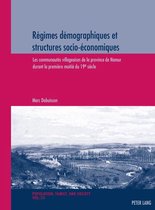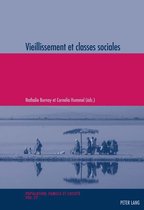Population, Famille et Société / Population, Family, and Society 19 - Mariage et métissage dans les sociétés coloniales - Marriage and misgeneration in colonial societies Ebook Tooltip Ebooks kunnen worden gelezen op uw computer en op daarvoor geschikte e-readers. Amériques, Afrique et Iles de l’Océan Indien (XVI e –XX e siècles) - Americas, Africa and islands of the Indian ocean (XVI th –XX th centuries)
Afbeeldingen
Sla de afbeeldingen overArtikel vergelijken
- Frans
- E-book
- 9783035194500
- 06 januari 2015
- Adobe ePub
Samenvatting
La conquête de vastes empires coloniaux par les puissances européennes, suivie par des mouvements migratoires d’ampleur variable selon les territoires et les époques, a donné naissance à de nouvelles sociétés. Les principaux groupes humains, indigènes, sous différentes appellations, colons d’origine européenne et leurs descendants, et parfois esclaves arrachés au continent africain, se sont mélangés parfois rapidement et avec une forte intensité, parfois plus tardivement ou marginalement. Les unions, officialisées par des mariages ou restées consensuelles, provoqué l’apparition de nouvelles générations métisses et ainsi qu’un phénomène de créolisation. L’effectif de chacun de ces groupes humains, et l’existence éventuelle de barrières entre eux, ont produit des degrés de métissage très divers que les administrateurs des sociétés coloniales ont tenté de classifier. Les seize textes réunis dans cet ouvrage abordent la manière dont les populations se sont mélangées, ainsi que la position des métis dans les nouvelles sociétés. Ces questions sont abordées dans une perspective de long terme, du XVIe au XXe siècle, et à propos de nombreux territoires, du Canada à la Bolivie, des Antilles à Madagascar, de l’Algérie à l’Angola.
The conquest of large colonial empires by European powers, followed by migratory flows, more or less important depending on places and periods, gave birth to new societies. The most important human groups, indigenous, European born settlers and their descendants, and sometimes slaves snatched from the African continent, mixed, more or less early, more or less intensely. Unions, legally registered or not, and misgeneration lead to the appearance of mixed-blood generations and to a process of creolisation. The numerical strength of these human groups, and the existence of barriers between them, produced various degrees of misgeneration that the authorities of the colonial societies tried to identify and to classify. The sixteen texts gathered in this book study the way that these populations got mixed, and the place of mixed-blood people in the new societies. These issues are tackled in a long-term perspective, about various territories, from Canada to Bolivia, from the French West Indies to Madagascar, from Algeria to Angola.
Productspecificaties
Inhoud
- Taal
- fr
- Bindwijze
- E-book
- Oorspronkelijke releasedatum
- 06 januari 2015
- Ebook Formaat
- Adobe ePub
Betrokkenen
- Hoofdauteur
- Michel Oris
- Tweede Auteur
- Guy Brunet
- Hoofdredacteur
- Guy Brunet
- Hoofduitgeverij
- Peter Lang Group Ag, International Academic Publishers
Lees mogelijkheden
- Lees dit ebook op
- Desktop (Mac en Windows) | Kobo e-reader | Android (smartphone en tablet) | iOS (smartphone en tablet) | Windows (smartphone en tablet)
Overige kenmerken
- Editie
- 1
- Studieboek
- Nee
EAN
- EAN
- 9783035194500
Je vindt dit artikel in
- Categorieën
- Taal
- Frans
- Boek, ebook of luisterboek?
- Ebook
- Studieboek of algemeen
- Algemene boeken
- Beschikbaarheid
- Leverbaar
Kies gewenste uitvoering
Prijsinformatie en bestellen
De prijs van dit product is 93 euro.- E-book is direct beschikbaar na aankoop
- E-books lezen is voordelig
- Dag en nacht klantenservice
- Veilig betalen
Rapporteer dit artikel
Je wilt melding doen van illegale inhoud over dit artikel:
- Ik wil melding doen als klant
- Ik wil melding doen als autoriteit of trusted flagger
- Ik wil melding doen als partner
- Ik wil melding doen als merkhouder
Geen klant, autoriteit, trusted flagger, merkhouder of partner? Gebruik dan onderstaande link om melding te doen.








